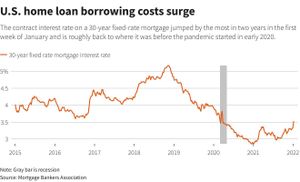Tensions between the United States and Mexico have escalated sharply as the Mexican government, under President Claudia Sheinbaum, faces accusations from the U.S. over its handling of drug trafficking and the proposed implementation of hefty tariffs.
On Friday, Mexico announced yet another major seizure of 18 kilos of fentanyl hidden within the spare wheel compartment of a passenger bus. This haul is part of Mexico's broader effort to combat the surge of illegal drugs crossing the border, particularly the potent synthetic opioid known for its deadly impact. The announcement came just as U.S. President Donald Trump reiterated his commitment to impose 25% tariffs on Mexican goods, citing illegal fentanyl and migration as key issues. White House press secretary Karoline Leavitt stated, "The president will be implementing tomorrow 25% tariffs on Mexico... for the illegal fentanyl they have sourced and allowed to distribute it to our country, which has killed tens of millions of Americans." These tariffs are set to take effect on Saturday.
The recent fentanyl seizure is not an isolated incident. Mexican authorities reported significant drug busts recently, highlighting their intensified efforts against drug trafficking. Alongside the fentanyl, two kilos of heroin were discovered during the inspection. The authorities pointed out another alarming fact: they had seized four tons of methamphetamine during a raid conducted on a house situated south of California, giving rise to growing concerns over the powerful cartels operating within Mexico.
The U.S. Drug Enforcement Administration has identified the Sinaloa Cartel as the dominant force within the fentanyl market, manipulating global supply chains and fostering the growth of clandestine labs throughout Mexico. The 2024 National Drug Threat Assessment clearly outlines Mexican cartels as central players contributing to America's synthetic narcotics epidemic. According to U.S. officials, these powerful organizations are at the heart of the fentanyl crisis, which has surged, causing tens of thousands of overdoses across the country.
Despite these allegations, Sheinbaum has pushed back against claims linking her government to drug cartels. On social media platform X, she stated, "We categorically reject the slander made by the White House against the Mexican government about alliances with criminal organizations." Instead, she pointed fingers at U.S. gun shops, implying they inadvertently supply weapons to drug traffickers. Sheinbaum added, "If the United States government and its agencies wanted to address the serious consumption of fentanyl in their country, they can combat the sale of narcotics on the streets of their main cities, which they don't do, and the money laundering generated by this illegal activity."
Adding fuel to the fire, she directed her economy minister, Marcelo Ebrard, to develop "Plan B" measures protecting Mexico's interests against Trump's tariffs—an approach deemed by Ebrard as "a flagrant violation" of trade agreements between the nations.
Economic analysts have warned these tariffs could significantly harm Mexico, which relies heavily on U.S. markets, with over 80% of its exports headed north. Many believe the tariffs could drive both Mexico and Canada toward recession, with estimations of up to 12% decreases in Mexican exports. Gabriela Siller from Banco BASE highlighted the role tariffs may play, stating, "Mexico's gross domestic product could fall by four percent if the tariff remains all year." A sharp economic decline could follow if the tariffs drag on for months, severely impacting trade and the Mexican workforce.
The situation has ignited conversations about the longstanding issue of drug trafficking and U.S.-Mexico relations, where complex ties are often strained by accusations and policies. While both nations have historically collaborated on security issues, tensions have risen again following the latest assertions from Washington.
Some political analysts posit the accusations leveled against the Mexican government are unprecedented. Retired diplomat Agustin Gutierrez Canet emphasized the gravity of formal allegations made by the U.S. For him, using such rhetoric by the Trump administration could serve as leverage, yet it could also undermine diplomatic relations.
Attacks and counterattacks appear to perpetuate division between two neighboring countries, unresolved by mutual interests against the looming happenings associated with drug cartels.
The U.S. has cited the bulk of fentanyl production links to Mexican cartels vehemently, inhibiting cooperation approaches with statements on tariffs. Previously, the Mexican president asserted, "We have not found precursors arrive -- because most of the precursors come from Asia -- and the entire process is manufactured here."", succinctly divvying up responsibilities, along with former president Manuel López stating the shared nature of this ailment, remarking, "Fentanyl is produced in the United States, Canada, and Mexico."
While diplomatic ties remain tenuous, citizens on both sides continue to grapple with the realities of drug-related violence and the crippling effects of addiction. The dialogues surrounding the safety of communities and the economy remain fragmented across border lines and entrenched positions, with no easy answers on the horizon.
Both governments face mounting pressures: for America, the crises of addiction and overdose deaths; for Mexico, the economic repercussions of U.S. tariffs, compounded by drug trafficking allegations. The path forward demands nuanced approaches to enforcement and mutual collaboration on the issues threatening their shared border.



